Latest News
India rebuffs Afghanistan on strategic meet

India has driven back Kabul invitation to regain Strategic Partnership Agreement (SPA) in Kabul.
The Hindu, an Indian newspaper writes, stung by Afghanistan’s security and strategic shift towards Pakistan in the past year, India has rebuffed another invitation from Kabul to revive the Strategic Partnership Agreement (SPA) signed in 2011 to hold a meeting of the Strategic Partnership Council (SPC).
Afghan experts say India has realized that pro-Pakistani elements have been influenced inside the Afghan government.
“Due to the lack of a specific foreign policy, India has realized that Pakistan has influenced the Afghan government and has appointed some figures,” Jawed Kohistani an Afghan military expert said.
Diplomatic sources at the highest level have confirmed to The Hindu newspaper that India has conveyed its inability to hold the meeting that would be chaired by Foreign Affairs Minister Sushma Swaraj and her Afghan counterpart Salahuddin Rabbani “due to prior commitments.”
New Delhi has also conveyed that Indian Foreign Affairs Minister will not attend the upcoming Regional Economic Cooperation Conference on Afghanistan (RECCA) in Kabul on September 3 and 4, and instead Secretary, Multilateral and Economic Relations, will represent India at the conference.
“The meeting will not be held due to the programs determined by India earlier, and it doesn’t have any connection with Kabul – Islamabad relations, on the other hand at the SPA meeting the Indian foreign minister will not attend and another official will attend,” Shekib Mustaghni Afghanistan’s Ministry of Foreign Affairs spokesperson said.
While India’s decision to not attend the RECCA conference, which is essentially a development and donor conference, may not affect relations given India’s $2.3-billion strong commitment to Afghanistan, Afghan officials said the delay in the SPC meeting is more significant. India and Afghanistan have held only one meeting of the SPC (in 2012) since former Afghanistan President Hamid Karzai and former India Prime Minister Manmohan Singh signed the historic agreement in 2011.
India was the first country Afghanistan chose to sign a strategic partnership agreement with, despite the U.S. and Pakistan keen on doing so. Since then, however, India has significantly withdrawn from its strategic promises to Afghanistan for a number of reasons.
Next, said officials, after President Ashraf Ghani took charge in 2014, he made a decisive shift towards mending fences with the Pakistan Army, including visits to the Pakistan General Headquarters and inviting the Army and intelligence chiefs to Kabul, and signing an MoU between intelligence agencies NDS and ISI, even as his government joined talks with the Taliban hosted by Pakistan.
“After Karzai, we have never trusted Ashraf Ghani’s motivations given the overtures he made to the Pakistan Army,” said the former Ambassador to Kabul Rakesh Sood, adding, “India has always been hesitant about what it wanted from the SPA anyway. The demand for defence equipment, for example, was something we were never able to deliver on.”
Reported by: Farahnaz Froton

Latest News
IEA’s minister of culture meets with EU diplomat over preserving Afghan culture
“Protection of cultural heritage is not only the duty of Afghans, rather, it is the duty of the world to fully cooperate with Afghanistan in this field,” he said.

Khairullah Khairkhwa, Afghanistan’s minister of information and culture, this week met with Veronika Boskovic Pohar, the new EU charge d'affaires, to discuss the protection of Afghanistan’s cultural heritage.
According to the ministry, both sides discussed and exchanged opinions on the protection of cultural heritage, its value and public awareness on the issue.
At the meeting, Khairkhwa voiced appreciation for the EU’s cooperation in the field of cultural heritage protection, and emphasized the need for further development of relations.
"Protection of cultural heritage is not only the duty of Afghans, rather, it is the duty of the world to fully cooperate with Afghanistan in this field," he said.
Pohar in turn assured the minister of the EU’s continued cooperation in this respect.
Latest News
Muttaqi meets with UAE’s Deputy PM during Gulf state visit
The meeting was also attended by Ahmed Bin Ali Al Sayegh, the UAE’s Minister of State.
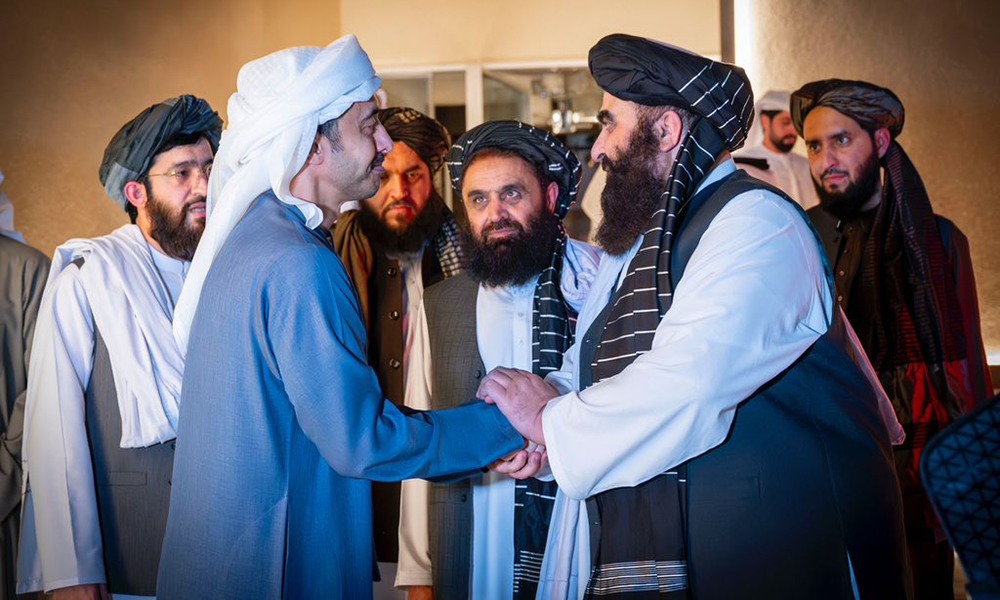
Afghanistan’s Minister of Foreign Affairs Mawlawi Amir Khan Muttaqi on Wednesday met with Sheikh Abdullah Bin Zayed Al Nahyan, Deputy Prime Minister and Minister of Foreign Affairs for the UAE, in Abu Dhabi on Wednesday for talks on various issues including the Islamic Emirate’s aspirations for stability, development and prosperity in the country.
The two diplomats also discussed progress made in Afghanistan over the past three years.
In addition, they discussed bilateral relations and ways to enhance them to achieve the mutual interests of both countries, promoting prosperity and welfare for their peoples.
According to a statement issued by the UAE’s ministry of foreign affairs, Al Nahyan and Muttaqi also exchanged views on regional and international issues of common concern.
Additionally, they reviewed ways to strengthen cooperation between the two countries in several sectors, particularly in economic and developmental fields, while supporting reconstruction and development efforts in Afghanistan.
The meeting was also attended by Ahmed Bin Ali Al Sayegh, the UAE’s Minister of State.
Also on Wednesday, Muttaqi met with India’s Foreign Secretary Vikram Misri in Dubai where they discussed the need to strengthen bilateral ties.
Misri reaffirmed India's long-standing friendship with the people of Afghanistan, and emphasized the strong people-to-people connections between the two nations.
Misri highlighted India's commitment to addressing Afghanistan's urgent developmental needs and extending humanitarian support.
The discussions also included an assessment of India's ongoing humanitarian assistance programs in Afghanistan.
Latest News
Hundreds of veterans and others urge Trump to continue resettling Afghans
The letter calls on Trump and congressional leaders to continue funding the resettlement of at-risk Afghans and their families
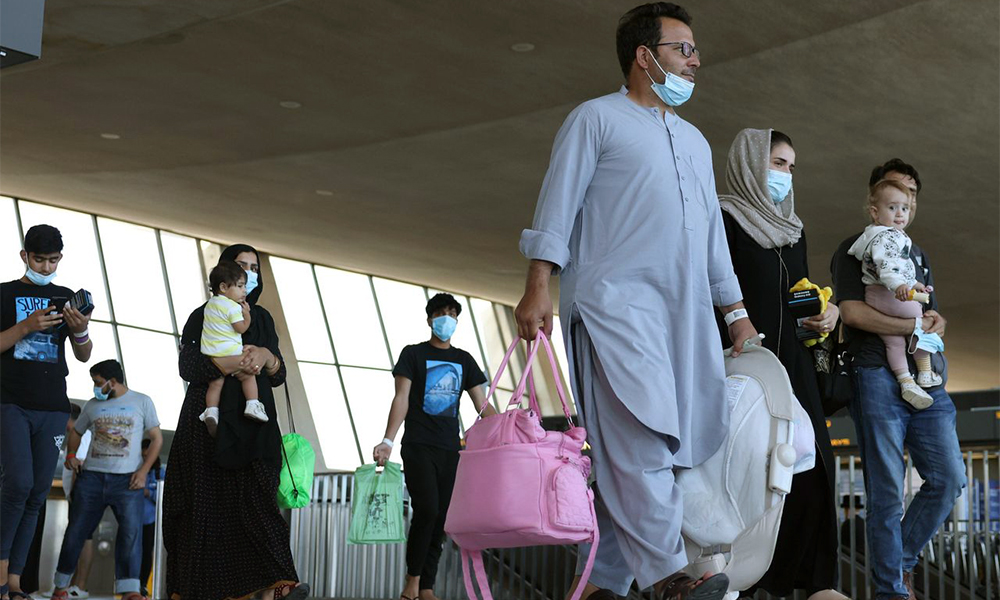
Hundreds of veterans and current and former U.S. officials want President-elect Donald Trump to preserve U.S. special visa and resettlement programs for Afghans at risk of retribution for working for the United States during the 20-year war against the Islamic Emirate of Afghanistan, according to a letter reviewed by Reuters.
The letter, signed by the veterans, officials and others, will be sent to Trump and congressional leaders and was organized by #AfghanEvac, the leading coalition of groups that work with the U.S. government to help Afghans start new lives in the United States.
"Many of us have worked closely with Afghan interpreters, soldiers and families who risked everything to protect and guide us," said a draft of the letter.
"To abandon them now would be a betrayal of the values we fought to defend and the trust built through years of shared struggle and sacrifice."
The letter calls on Trump and congressional leaders to continue funding the resettlement of at-risk Afghans and their families and for Congress to approve an additional 50,000 Special Immigration Visas (SIVs), Reuters reported.
The current cap of 50,500 SIVs is expected to run out late this summer or early fall.
The Trump transition team did not immediately respond to a request for comment.
Shawn VanDiver, the head of #AfghanEvac, said the letter reflected concerns that Trump will curtail the SIV and resettlement programs as part of his promised crackdown on immigration.
-
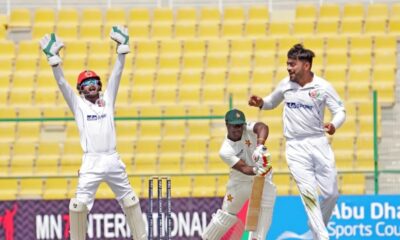
 Sport4 days ago
Sport4 days agoRashid Khan puts victory in sight for Afghanistan v Zimbabwe
-
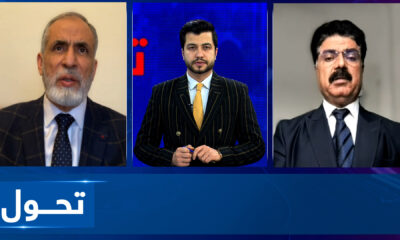
 Tahawol4 days ago
Tahawol4 days agoTahawol: Iran’s deportation of 3 million Afghan refugees
-
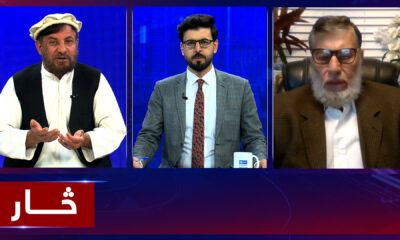
 Saar4 days ago
Saar4 days agoSaar: Increase in Durand Line clashes discussed
-

 Sport3 days ago
Sport3 days agoAfghanistan triumphs in Test victory against Zimbabwe
-

 Latest News4 days ago
Latest News4 days agoPakistan has right to attack TTP in Afghanistan: PM’s adviser
-

 Latest News3 days ago
Latest News3 days agoIran will use ‘all means’ to restore water rights from Afghanistan
-

 Latest News4 days ago
Latest News4 days agoBlinken unapologetic about ending America’s ‘longest war’ in Afghanistan
-
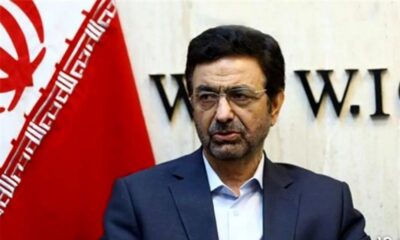
 Latest News4 days ago
Latest News4 days agoIranian MP says dam construction in Afghanistan is ‘questionable’















